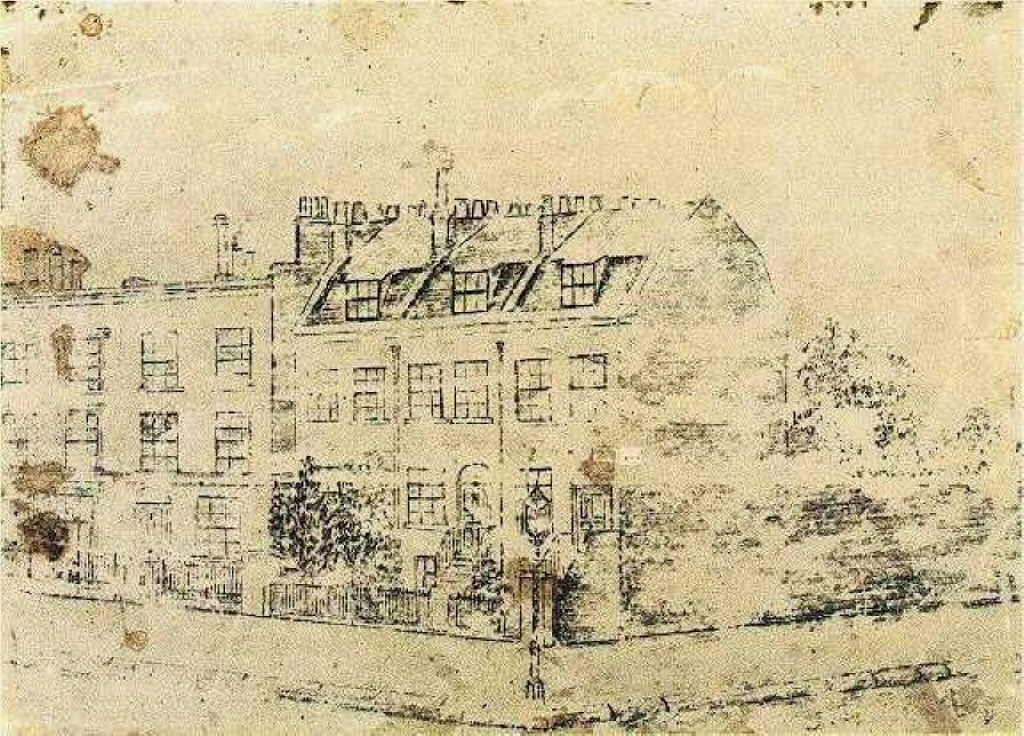 |
|
Street in Saintes-Maries, ca. July 17, 1888, by Vincent van Gogh–done as a mature artist.
|
The good Lord willing and the creek don’t rise (which is, sadly, not wholly rhetorical right now) I will have a new drawing student this week. My friend has internalized the message that she can’t learn to draw; in fact she told me that she “lacks the gene to draw.” I think that is absolutely wrong, and I challenged her to let me teach her. She has risen to the challenge: “I have a special brand-new sketch-book and a special old and beloved pencil all in readiness.”
I am not a big believer in an art genius, any more than I’m a believer in a math genius or a language genius.* People are more facile at some things than others, but almost everyone can learn to draw, just as almost everyone can learn to do sums, conjugate verbs or sing.
 |
| An early drawing of houses at 87 Hackford Road in London by Van Gogh. He was an adult when he drew this, but untutored. Good thing he never told himself “I can’t draw.”
|
My friend has a PhD in Classics, can rattle away in several antique languages, and has been entrusted with the molding of impressionable minds at a Catholic college. On that evidence alone, I doubt she is learning-impaired. So I am confident she will learn to draw very quickly.
Imagine if we taught other subjects like we teach art:
Here is Drusilla in English class. Her teacher encourages the class to write down words that express their feelings, without ever discussing spelling, syntax, or structure. Having no notion of grammar, Drusilla gets herself totally balled up in ‘can and could/may and might/shall and should/will and would,’ and throws down her pencil in frustration. “Oh, Drusilla,” says her teacher in a sad voice. “That’s OK. Not everyone can learn to write.”
Here is Drusilla in math class. Day after day, her teacher stands at the board calling out numbers in vast, voluptuous streams of ever-changing patterns. Drusilla, however, wants to calculate the volume of a sphere. “Oh, Drusilla,” says her teacher in a sad voice. “That’s OK. Not everyone is good at mathematics.”
Exploring creativity is instructive for five and seven year olds. By age 13, a kid needs to be taught the tools of art if he or she is going to succeed. We have, by and large, abdicated teaching those tools. We place self-expression above craft, and the results are predictably poor.
Oddly, virtue is another subject where the educational establishment has decided it has no right to impose standards. Virtue is unquestionably a learned discipline, as any person who’s ever struggled to civilize a child can tell you. Is the decline in teaching art somehow related to the decline in teaching ethics?
There is only one slot open for my July workshop at Lakewatch Manor in Rockland, ME, and August and September are sold out. Join us in July or October, but please hurry! Check here for more information.
*Speaking of “genius,” the word originally referred to a tutelary god or guardian deity or spirit. Using it to refer to a person of outstanding ability is the product of the Renaissance, which shows how our thinking has morphed over time.
